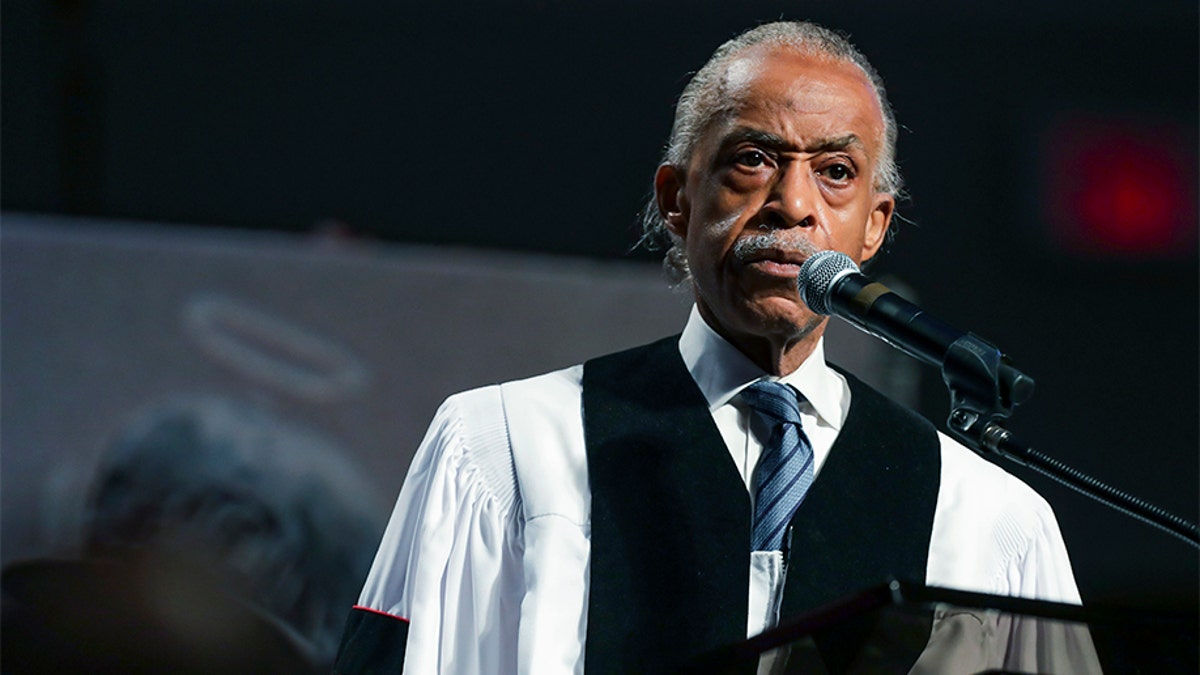Juneteenth: What to know
A look at the history behind Juneteenth and what you need to know about the day that commemorates the end of slavery in the United States.
The Rev. Al Sharpton is scheduled on Friday to headline an event in Tulsa, Okla., marking the end of slavery — one day before President Trump is slated to hold a 2020 reelection rally in the same city.
Sharpton, a longtime civil rights activist, will be speaking at a Juneteenth event, a holiday commemorating the emancipation of enslaved African people in the United States.
Ahead of his speech, Sharpton said it was crucial for Americans to understand the history of Juneteenth and the struggles leading up to it to get an accurate picture of why so many protests have been taking place across the country over the last several weeks.
"You can't understand where we are now if you don't understand that this is part of American history," he said on MSNBC. "... I think that in order to understand this moment, that's pregnant with possibilities, pregnant with real change, you need to understand what is built into this moment and if you don't understand your own fellow citizens and the history of their parents and grandparents passed down to them you will not understand what we are responding to now when we see history to continue to repeat itself when you have cases like George Floyd and Rayshard (Brooks) in Atlanta, Georgia."
Sharpton added that it was "extremely important" for Americans to learn about Juneteenth and that having the knowledge would create a "more intelligent and balanced country,"
Millions of Americans are observing Juneteenth this year as racial inequality and police brutality have been at the forefront of national debate for weeks.

The Rev. Al Sharpton speaks during the funeral for George Floyd on Tuesday, June 9, 2020, at The Fountain of Praise church in Houston. (AP)
OAKLAND POLICE INVESTIGATE EFFIGY HANGING FROM TREE
The holiday itself is one of the oldest celebrations commemorating the end of slavery in the United States. It has its roots in Texas, where more than 250,000 slaves received the news on June 19, 1865 – two years after President Abraham Lincoln signed the Emancipation Proclamation – that they were free.
There are 47 states and the District of Columbia that commemorate or observe Juneteenth, according to a Congressional Research Service report released in June. New York and Virginia were among the states that announced they would be giving state workers a paid holiday.
The day is also being embraced by big corporations like Nike, Twitter, Target and the NFL.
"This year, as we work together as a family and in our communities to combat the racial injustices that remain deeply rooted into the fabric of our society, the NFL will observe Juneteenth on Friday as a recognized holiday and our league offices will be closed," NFL Commissioner Roger Goodell said in an email to employees.
Gwen Ragsdale, executive director of the Lest We Forget Slavery Museum in Philadelphia, told NPR that recognizing and celebrating black history is overdue.
"African-Americans were on the front lines of every way, from the Spanish-American War, throughout the Revolutionary war, the Civil War, both World Wars, Vietnam," she said. "We have paid our dues with our blood and our toil, so America owes African Americans much more than they are willing to acknowledge."
She added that knowing, accepting and learning from history will go a long way toward change and equality.
On Thursday, Trump received criticism for claiming in a Wall Street Journal article that no one had heard of the holiday before he scheduled his reelection rally in Tulsa on that day.
"I did something good: I made Juneteenth very famous," Trump said. "It's actually an important event, an important time. But nobody had ever heard of it."
CLICK HERE FOR THE FOX NEWS APP
According to a transcript of the interview, Trump asked an aide if she had heard of Juneteenth. She pointed out that the White House had issued a statement last year commemorating the day. In fact, the White House has put out statements on Juneteenth during all three years Trump has been president.
"Oh really? We put out a statement? The Trump White House put out a statement?" Trump asked, before adding, "OK, OK. Good."
Trump rescheduled his rally to Saturday after people pointed out that Tulsa is the site of one of the worst massacres in American history. Over the course of 24 hours in 1921, a white mob killed dozens of black people and torched black-owned homes and businesses.











































